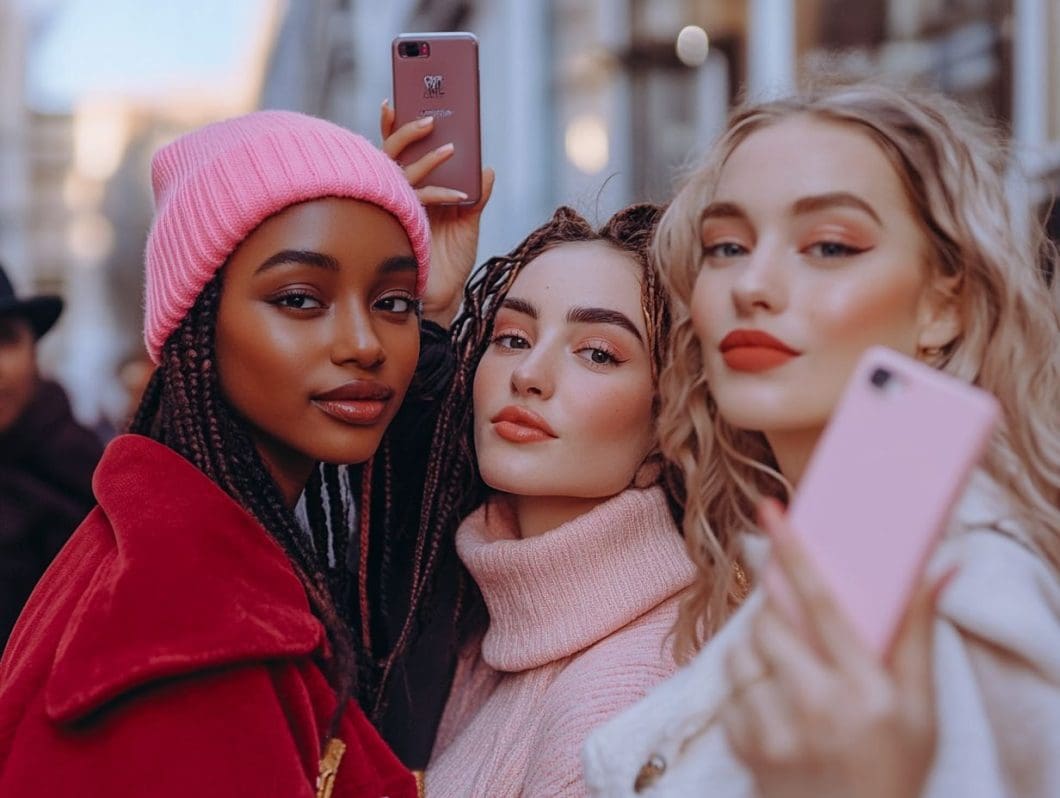In today’s digital age, social media has transformed the beauty landscape, shaping trends and influencing perceptions like never before.
From the rise of beauty influencers to the pressure of conforming to often unrealistic ideals, the impact is profound.
We explore the dual effects of social media on self-image and mental health while highlighting how brands leverage these platforms for marketing, emphasizing the need for authenticity.
Discover ways to navigate this evolving world of beauty trends, ensuring a healthy relationship with your own beauty journey.
Key Takeaways:
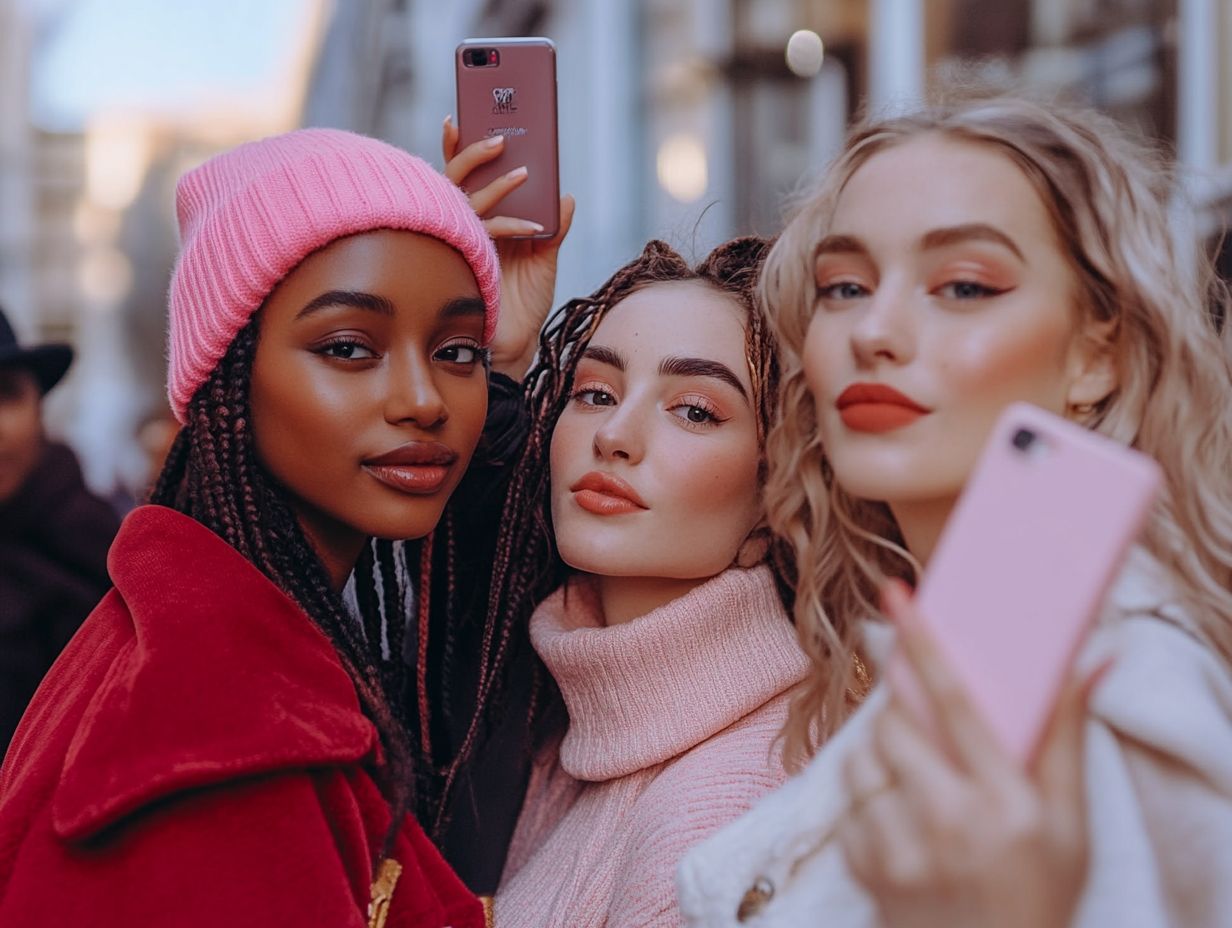
- Social media has greatly influenced beauty trends through the rise of influencers, creating pressure to conform to unrealistic beauty standards.
- While it can negatively impact self-perception and mental health, social media also has the power to promote diversity and inclusivity in the beauty industry.
- Brands play a significant role in shaping social media beauty trends and should prioritize authenticity and transparency in their marketing strategies.
Social Media and Beauty Trends
Social media has fundamentally transformed the beauty industry, establishing a dynamic platform where beauty trends can emerge, evolve, and engage millions of individuals worldwide.
Platforms such as Instagram, TikTok, and YouTube have become essential for beauty influencers, who utilize their extensive reach to disseminate makeup routines, skincare tips, and product recommendations, thereby shaping consumer preferences and expectations.
This interconnected beauty community is characterized by user-generated content, which has redefined how brands market their products and interact with audiences. Consequently, this shift drives consumer feedback and contributes to the emergence of new beauty standards.
The Rise of Influencers and Their Impact
The emergence of beauty influencers has significantly transformed the landscape of beauty marketing, as they utilize platforms such as TikTok and Instagram to engage with their audiences and provide authentic product recommendations.
These digital personalities, with their millions of followers, employ engagement metrics such as likes, shares, and comments to create content that resonates profoundly with their fan base. Through the demonstration of their genuine experiences and reactions to products, they exert a substantial influence on consumer choices.
Collaborations with established beauty brands further enhance this impact; for example, Jeffree Star’s makeup lines and Huda Kattan’s renowned cosmetics have achieved remarkable success by leveraging the trust they have cultivated among their followers.
As these influencers partake in transparent discussions regarding product efficacy, their content generates essential consumer feedback, prompting brands to adjust their marketing strategies and develop products that truly align with consumer preferences.
How Social Media Shapes Beauty Standards
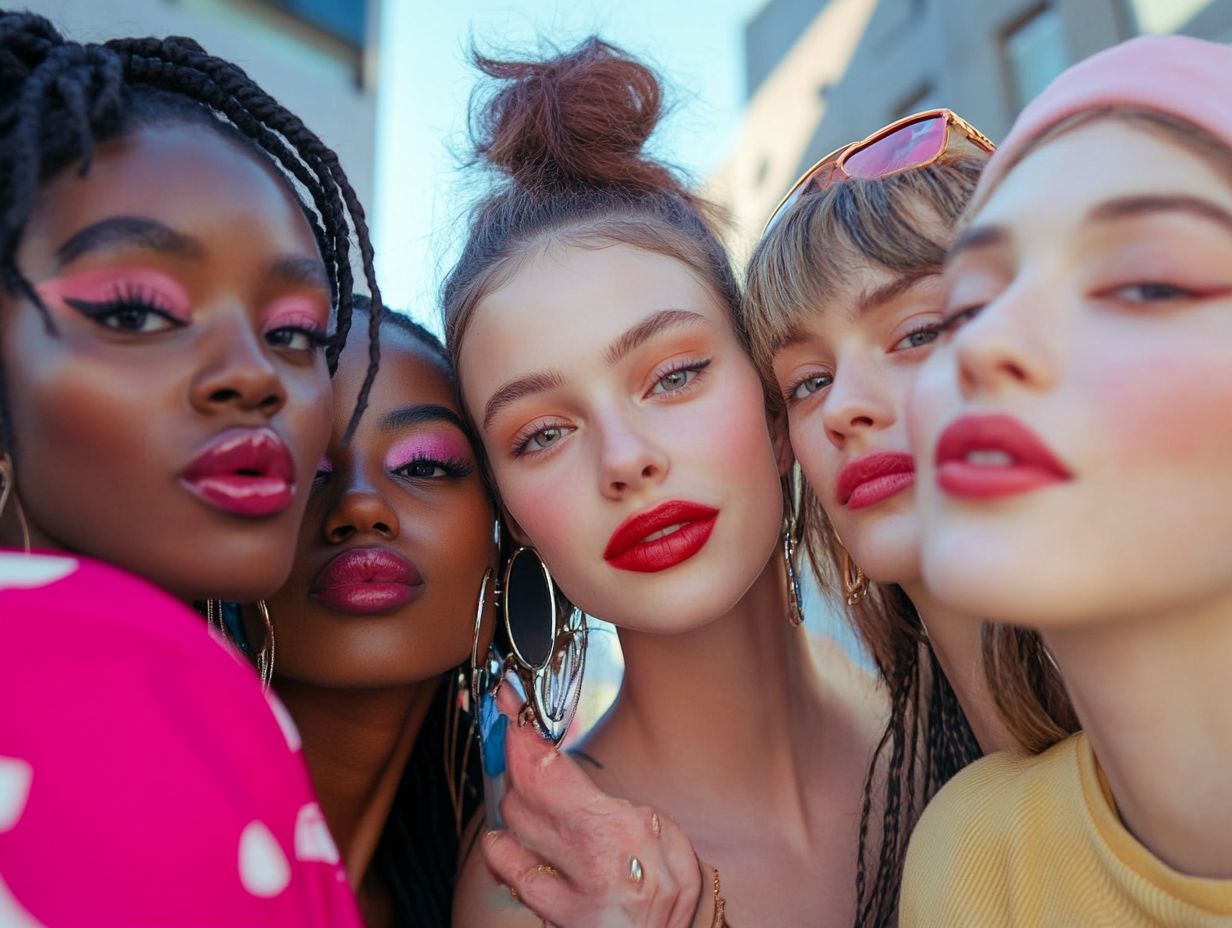
Social media plays a crucial role in shaping beauty standards, frequently promoting diverse ideals while also perpetuating unrealistic expectations through curated content, filters, and edited images.
This complex dynamic underscores the ongoing debate between prevailing beauty standards and the body positivity movement, which advocates for a broader representation of beauty in its various forms, challenging traditional norms imposed by the media.
The Pressure to Conform to Unrealistic Ideals
The pressure to conform to unrealistic beauty ideals perpetuated by social media can significantly impact mental health and self-care, often leading individuals to prioritize appearance over overall well-being.
This detrimental dynamic is intensified by the influence of beauty influencers, who frequently present a curated version of perfection, leaving their followers feeling inadequate. Research indicates that approximately 70% of young individuals report feeling inadequate after engaging with social media platforms, underscoring the profound effect these images have on self-esteem.
Numerous personal accounts illustrate how individuals have resorted to extreme measures, such as unhealthy dieting or cosmetic procedures, in an effort to conform to an ideal that is frequently filtered and digitally altered. The emotional consequences of this phenomenon can manifest as anxiety, depression, and a troubling preoccupation with self-image, making it essential to comprehend the psychological ramifications of these societal pressures.
The Positive and Negative Effects of Social Media on Beauty
Social media has facilitated community connection and enablement among skincare enthusiasts and makeup aficionados; however, it also poses challenges concerning mental health and the pressure to validate one’s beauty.
The dual nature of social media creates an environment in which individuals can share skincare routines and beauty insights, while simultaneously contending with the adverse effects of comparison and consumer influence.
Influencing Self-Perception and Mental Health
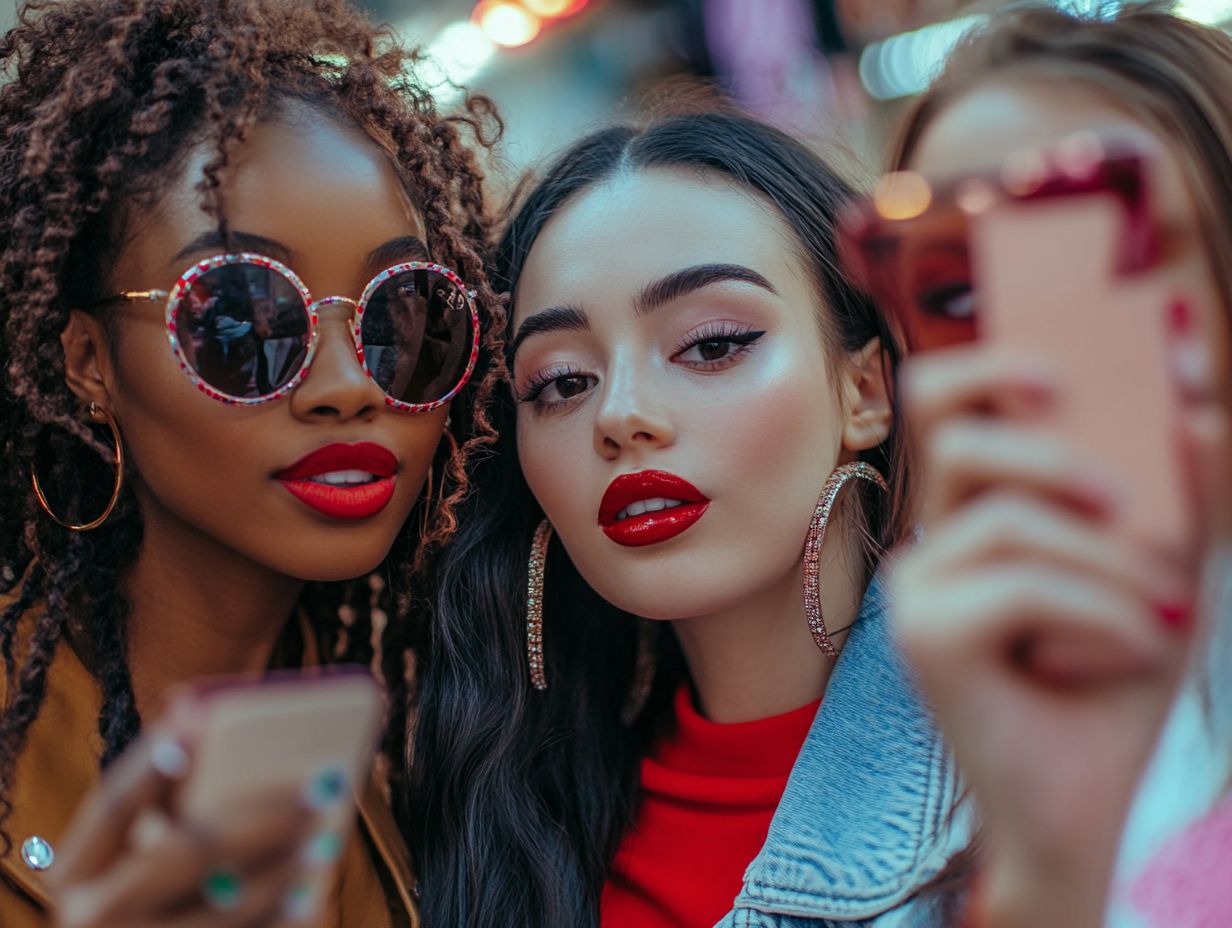
The influence of social media on self-perception can be significant, as individuals frequently compare themselves to curated images and beauty standards presented online, potentially leading to mental health challenges.
This continuous exposure fosters a distorted reality in which validation is often measured by likes and followers, thereby engendering feelings of inadequacy and self-doubt. The beauty standards commonly depicted in these digital environments can pressure many individuals to conform, resulting in heightened anxiety and depression.
As conversations within the beauty community progress, it is crucial for individuals to adopt coping strategies, such as practicing self-compassion and moderating social media use. Engaging in self-care practices—whether through mindfulness, physical activity, or nurturing supportive relationships—can serve as effective remedies against the adverse effects of online comparisons and promote a more positive self-image.
Promoting Diversity and Inclusivity
As the beauty community increasingly embraces diversity and inclusivity, social media has emerged as a powerful platform for challenging traditional beauty standards and promoting body positivity.
This shift is underscored by numerous initiatives that go beyond mere marketing; they emphasize genuine representation and the celebration of all forms of beauty. Influencers have taken a leading role in this dialogue, collaborating with brands that prioritize inclusivity in their campaigns and product offerings. By showcasing a diverse range of skin tones, sizes, and features, they not only validate personal experiences but also inspire others to embrace their individuality.
Furthermore, community engagement is essential, with events and discussions fostering deeper connections among individuals who share similar journeys. This collective effort is instrumental in advancing the movement toward a more inclusive beauty landscape.
The Role of Brands in Social Media Beauty Trends
Beauty brands have acknowledged the significance of social media as a vital marketing tool. They are strategically leveraging collaborations with influencers and implementing targeted product promotions to effectively reach consumers through innovative methods.
Using Social Media as a Marketing Tool
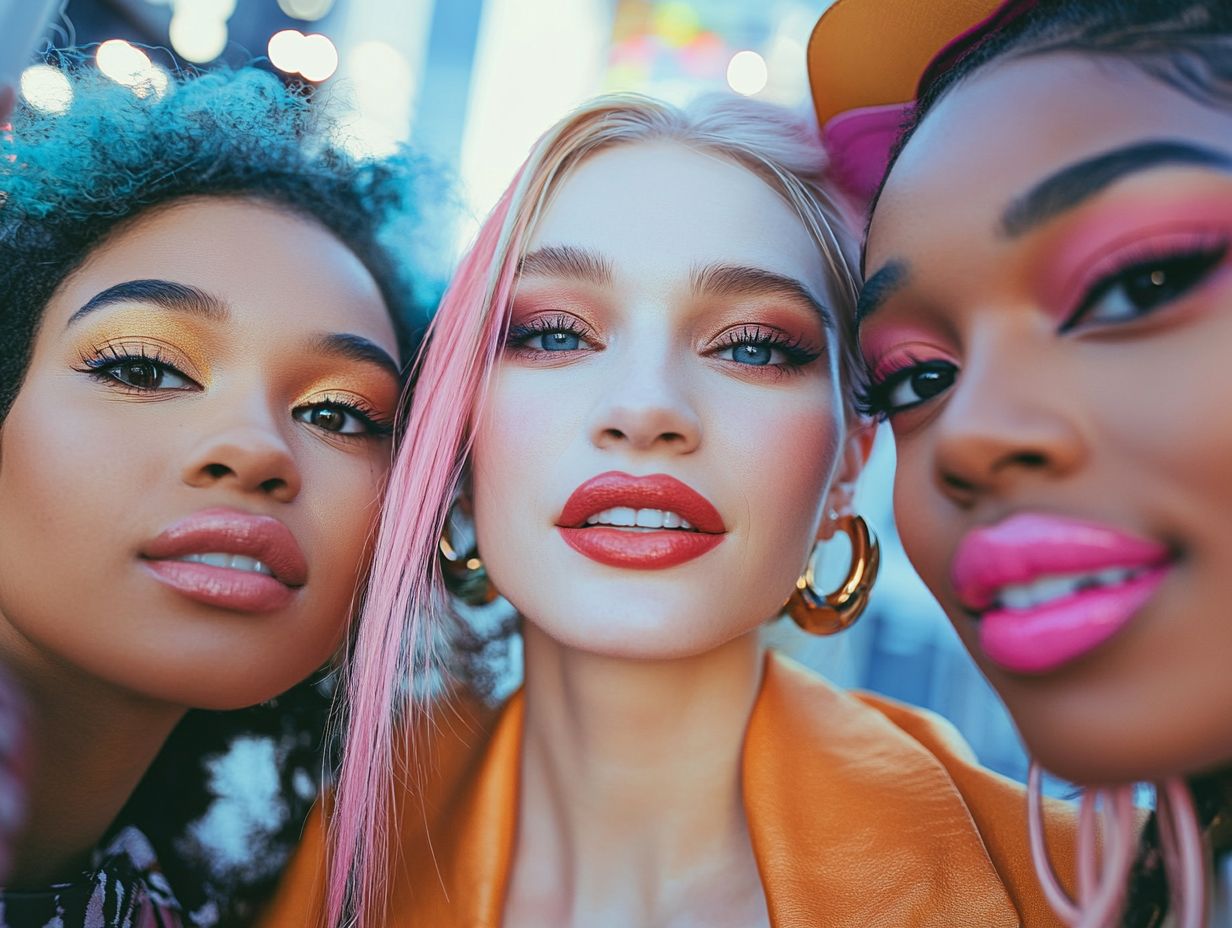
Social media serves as an essential marketing tool for beauty brands, facilitating connections with consumers through the analysis of engagement metrics and the subsequent tailoring of strategies.
Through targeted advertising, beauty brands can effectively reach specific demographics, ensuring that their messaging resonates with the appropriate audience. For instance, a prominent skincare line recently launched an Instagram campaign that featured user-generated content, encouraging customers to share before-and-after photos. This approach not only enhanced the brand’s authenticity but also fostered a sense of community around their products.
Furthermore, influencer partnerships have emerged as a significant factor in marketing success; many brands collaborate with renowned beauty influencers to enhance their reach and credibility. A notable example is a makeup brand that leveraged TikTok trends to present product tutorials, resulting in a substantial increase in sales and social engagement within just a few weeks.
The Importance of Authenticity and Transparency
In an era where consumers prioritize authenticity and transparency, beauty brands must adapt their marketing strategies to cultivate trust and loyalty among their target audience.
This adaptation transcends traditional marketing tactics; it entails actively engaging with consumers and incorporating their feedback into product development and branding initiatives. By prioritizing authentic influencer content, brands can create narratives that resonate more profoundly with their audience, highlighting shared values and fostering a sense of community.
When brands maintain transparency regarding their practices, including ingredient sourcing and business ethics, they enable consumers to make informed decisions. This, in turn, influences beauty standards, as feedback from a diverse consumer base challenges outdated ideals and promotes a more inclusive representation within the industry.
How to Navigate Social Media Beauty Trends
Navigating social media beauty trends necessitates a balanced approach that prioritizes self-care while facilitating the creative exploration of beauty techniques and the introduction of new product innovations.
Tips for Maintaining a Healthy Relationship with Beauty Trends
To foster a constructive relationship with beauty trends, it is imperative to prioritize self-care and approach social media content with a critical perspective, ensuring that consumer decisions are informed and deliberate.
This includes curating a social media feed that reflects diverse representations of beauty rather than adhering to a singular ideal. By following accounts that celebrate individuality, authenticity, and body positivity, individuals can contribute to a more supportive environment.
Engaging with communities that promote dialogue around self-acceptance can provide invaluable resources and reassurance in a society often inundated with unrealistic expectations. Furthermore, practicing self-care rituals focused on mental well-being can mitigate the pressures that beauty trends frequently impose.
Recognizing harmful beauty standards and choosing to embrace one’s unique attributes fosters a healthier relationship with self-image, thereby enabling individuals to reject trends that are damaging or superficial.


